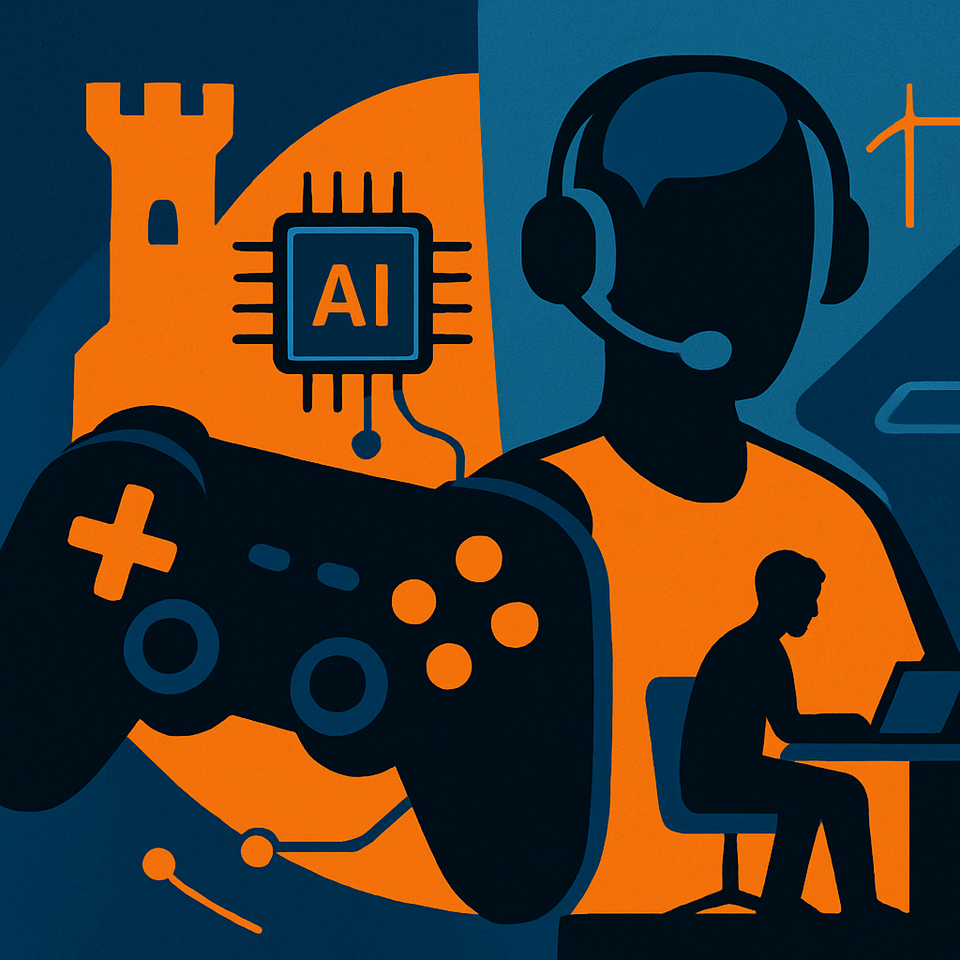Your Next Top Performer Isn't in Your Talent Pipeline—They're Running a Guild

The workforce optimized for AI-augmented, distributed environments already exists. They have been training for it for decades.
While traditional organizations grapple with the transition to remote collaboration and AI integration, millions of gamers have mastered these exact competencies through thousands of hours of deliberate practice.
The perception of gaming as unproductive latency is obsolete. It is a bias actively hindering organizational adaptation. The evidence is clear: gaming experience predicts superior performance in the modern workplace.
The Performance Delta
Gaming develops critical capabilities that traditional career paths rarely cultivate at the same velocity.
Systems Mastery and the AI Interface
Effective human-AI collaboration requires a specific cognitive profile. MIT research suggests human-AI teams often underperform unless the human component understands the system's logic. Gamers thrive in complexity. They intuitively grasp feedback loops, optimization constraints, and emergent behaviors. They do not treat AI as an opaque black box; they approach it as a system to be analyzed, understood, and optimized.
Operational Communication
In high-stakes environments, ambiguity causes failure. Gamers utilize "operational communication"—a style focused on clarity, efficiency, and measurable outcomes rather than social nuance. This precision is crucial for AI prompting, where specific, unambiguous input determines the quality of the output.
Performance-Based Trust
Gaming environments are ruthlessly meritocratic. Credibility is established through consistent execution and mission success, not credentials or office politics. This aligns perfectly with remote work dynamics where output matters infinitely more than presence.
Adaptive Leadership
The AI landscape is defined by constant evolution. Gamers are conditioned to thrive amidst continuous change, discarding outdated strategies (the "meta") without ego. Furthermore, they lead through competence and contribution, not hierarchy—the exact model required for flat, cross-functional organizations.
The Strategic Blind Spot
Despite IBM executives recognizing the advantages of gaming talent nearly a decade ago, and organizations like ManpowerGroup creating dedicated skills translators, most hiring filters still screen out this experience.
This bias creates a competitive disadvantage.
Organizations that recognize these competencies are already recruiting this talent for AI-focused roles and remote team leadership. They understand that "guild leadership" is often more relevant than traditional management training for coordinating distributed, asynchronous teams.
The Convergence Point
Three forces are converging:
- AI tools requiring precise, systematic interaction.
- Remote work demanding asynchronous excellence.
- Flat organizations needing distributed leadership.
Gamers possess native fluency in all three domains. They don't need training wheels for the AI workplace; they are already optimized for it.
The Competitive Reality
The question is no longer whether gaming experience translates to business value. Research confirms it, and performance data validates it.
The question is whether your organization will adapt quickly enough to compete for this talent.
Every month you maintain traditional hiring filters is a month you fall further behind organizations that recognize this shift.
The future workforce isn't coming. It's here. It just spent last night optimizing workflows and coordinating distributed teams across three continents.
The only question is whether you will recruit them or compete against them.
